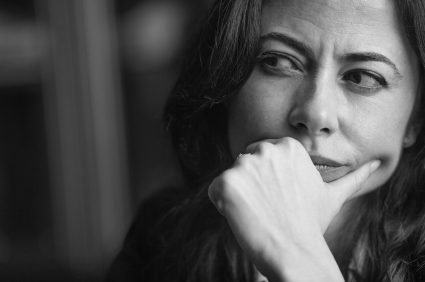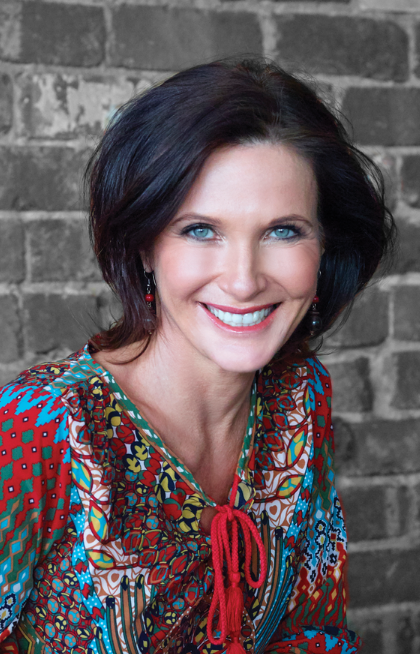Trusting gut instinct. Does fear cloud your better judgement?

 While speaking at a recent leadership conference, I met a woman who shared with me how badly she had been burnt by her soon to be x-husband. While she’d had suspicions for a while about his infidelity, it wasn’t until she caught him in bed with another woman, her neighbor at that, that she was forced to confront the extent of it.
While speaking at a recent leadership conference, I met a woman who shared with me how badly she had been burnt by her soon to be x-husband. While she’d had suspicions for a while about his infidelity, it wasn’t until she caught him in bed with another woman, her neighbor at that, that she was forced to confront the extent of it.
“Looking back,” she said, “I knew he was with other women. I just couldn’t bare to believe it.”
It’s a story I’ve heard before. In business, in love, in life… ignoring our instinct and paying a steep price.
I’m not writing this to caste shadows of doubt over the trustworthiness of the people in your life. However, this woman’s painful experience prompted me to reflect on why it is that so often, too often, we don’t tune in to our instinct when it comes to whether to trust the people we encounter, work and even live with. That is, where we let our fear of the fallout from trusting our gut instinct cloud our better judgement.
It’s our fear of what our intuition is telling us that drives us to ignore it. But as unsavory or inconvenient any ensuing fall-out may be, choosing to ignore your instinct, turning a blind eye, or just hoping the situation with remedy itself exacts a far steeper price.
Of course when we are young we are just a bit naïve. We simply haven’t lived enough to know any better … our intuition is yet to be fine-tuned, tested and tweaked. But as we step out more into the world, meet more people – some disingenuous, others outright shady – we begin to realize that not everyone thinks and acts the same as us.
I’m actually a pretty trusting person myself. I believe in the inherent goodness of most people, most of the time. But I’d like to think I’m also discerning. I don’t extend trust to everyone I meet, and I sometimes meet people who I wouldn’t trust as far as I could kick them. It’s often got nothing to do with their history. Rather an indefinable feeling I get about them. Over the years I’ve come to rely more and more on that intuitive sense to guide how much to trust people. The only time it’s ever let me down is trusting people to do things they simply weren’t competent to do. I put too much value on their character, and too little on their ability to perform a specific task. Lesson learned.
On a recent TV interview on The Circle (Australia’s version of The View… sort of) one of the hosts, actress and comedian Collette Mann, shared how she would never trust another man because her two former husbands had both cheated on her. As I said to Collette during our segment, before she can learn to trust another man, she must first learn to trust herself. That applies to us all – we have to be able to trust ourselves before we can truly trust anyone else.
Tuning in to our intuition takes courage because it requires that we risk losing something we want and facing a reality we don’t.
What gets in the way of benefiting from our intuition with people is our fear of what will happen if we listen to it. Sometimes we have so much invested in the status quo we avoid anything that threatens it, giving people the benefit of the doubt far too long. We fear the reaction of others if we question their integrity – whether it be causing them offence or an outright confrontation. More often, we fear how our own life will be impacted if our suspicions are proven correct. Tuning in to our intuition takes courage because it requires that we risk losing something we want and facing a reality we don’t. Humiliation. Being alone. Legal action. Ugly press. Others judgments. Social ostracism. Loss of money, of face, of friendship, and of the identity we had of ourselves and whoever violated our trust.
But as unpalatable, unsavory, or inconvenient any ensuing fall-out may be, ignoring or discounting your instinct, turning a blind eye, or just hoping the situation with remedy itself, exacts a far steeper price. My friend knows just how steep. She is not alone. Tuning in to your gut instinct can spare you untold grief.
If you aren’t sure whether to trust someone or not, ask yourself
1. Have they acted in a way that makes me question their integrity?
2. Have they done something that’s damaged trust with others in the past?
3. Do other people trust this person? (If you don’t know, ask around)
4. What does my gut tell me about this person? Our “gut instinct” is part of our highly intuitive, partly inexplicable, “sixth sense.” It picks up subtle cues that go beyond conscious awareness and often communicates to us through our body… hence the term “gut instinct.” But like a muscle, without use it loses strength. If you haven’t tuned into it for a long time, because you either don’t trust it or never slow down long enough to listen to it, the more practice it will take to build and sharpen. You can start by simply pausing from your busy-ness, taking a few deep slow breaths and observing what you are feeling about a particular person, situation or decision you need to make in your work or life. A quiet murmur in your head. A queasiness in the pit of your stomach. A subtle inkling or quiet sense of foreboding. Or maybe something more distinct: every atom in your body screaming at you to pay attention, change direction, or run straight for the nearest exit.
Trust is the cornerstone of our relationships yet it exists on a spectrum. Living on either end of it – trusting blindly or refusing to trust anyone – exacts a profound price. Blind trust and distrust are equally expensive. While refusing to trust anyone because someone we once trusted betrayed it doesn’t serve us in the long run. Whichever end of the spectrum we gravitate toward, we must all be discerning about who we trust, what we trust them with and when we should withdraw it. All people deserve a chance to prove their trustworthiness; no-one should expect to keep it if their actions prove them lacking.


